'Women in Science' One-on-One Mentoring Program
We are excited to share that our Women in Science one-on-one mentorship module launched in January 2020 has been been well received by both mentors and mentees. Each woman trainee is paired with a woman mentor and the pair meet once a month either in person or online. Through these conversations, mentors provide advice and guidance, help the trainee develop skills for the workplace, accelerate the trainee’s leadership growth and expand their professional networks.

Tania Sultana Ph.D
I am a medical writer and founder of medNarrate, a medical communication agency, where I write evidence-based, impactful, and engaging science content. I transitioned into communications when I observed a significant gap existed between science and effective science communication and realized that bridging this gap has a profound impact on public health. I am from Bangladesh where I completed my Bachelor's and Master's in biochemistry and molecular biology. I then taught in the same department for three and a half years nurturing young minds. My research career started with a focus on infectious diseases at icddr,b (Bangladesh) and Massachusetts General Hospital (USA). I then pursued my doctorate in cell and molecular biology (France), followed by post-doctoral research in developmental biology (Sinai Health in Canada) where I was the first Bangladeshi woman to win a Banting-Best fellowship in Canada. I have authored over 10 research articles in peer-reviewed journals and presented my findings at numerous conferences. My key to maintaining my work-life balance is regulating my focus and energy. Here are my top 3 strategies: mindfulness, task prioritization, and the 80/20 rule. I was born into a discriminatory society, and throughout my career, I have experienced challenges faced by women, women of color, immigrants, and mom professionals. This drove my commitment to supporting mentees in overcoming imposter syndrome and navigating their careers with confidence through the NSERC PROMOTE program.
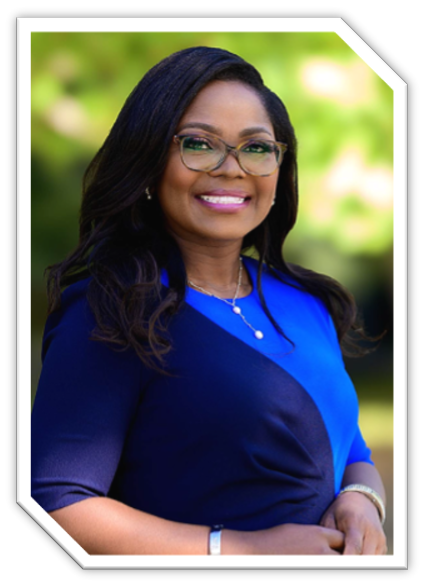
Adekunbi Adetona Ph.D
Adekunbi (Kunbi) Adetona has over a decade of expertise in environmental science and management. Currently, she is a Policy Analyst with Natural Resources Canada, contributing her skills to diverse projects within the Energy Systems Sector and the Canadian Forest Service. She obtained her M.Sc (University of Saskatchewan) and Ph.D. in Biological Sciences (University of Calgary) where her research focused on effectively managing energy and carbon flows within Canada’s agri-food and forestry systems. Her collaboration with the Canadian Energy Systems Analysis Research Initiative and the Transition Accelerator highlights her dedication to impactful research. Kunbi shares her expertise on climate change mitigation through various platforms, including The Globe and Mail, Climate Atlas of Canada, Research Money Magazine and is on the Editorial Advisory Board of the Office of GCB Bioenergy. Her contributions have earned her over 20 academic scholarships and leadership awards. Driven by her passion for supporting others, Kunbi actively volunteers as a Steering Committee Member of the Black Employees Advisory Council of NRCan (BEACON) & has been involved in various programs aimed at empowering youth to pursue academic and professional excellence. She has delivered numerous academic and career talks to over 300 students of all levels, individually mentoring many of them. She joined the NSERC PROMOTE Women Championing Women module in September 2023. In addition, she offers support to new immigrant women as they settle into life in Canada (Calgary Catholic Immigration Society). The joy of witnessing her mentees receive academic awards, medals and secure desired jobs remains one of her most fulfilling experiences. Outside of her professional pursuits, Kunbi cherishes spending quality time with her family and friends.
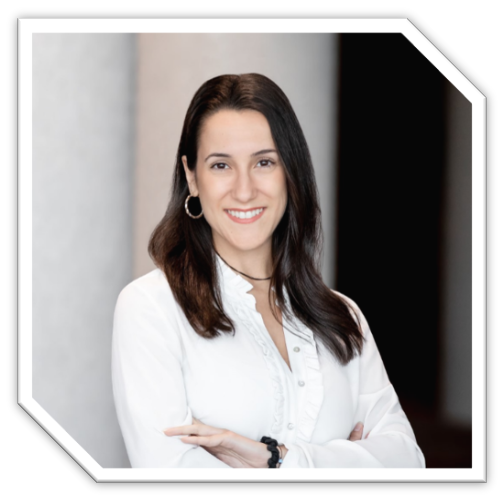
Christina Mastromonaco Ph.D
Christina Mastromonaco is a McGill University alumna, who completed her master’s and doctoral research in the largest ocular pathology laboratory in North America. Her goal was to expand the scientific comprehension of IOL biocompatibility in selected patients post cataract surgery. Christina’s research in translational sciences drove her passion in following a career that can positively impact the lives of patients. Christina’s experience led her to Medical Science Liaison roles within industry, touching different types of therapeutic areas. This role drives her to communicate her knowledge with the people around her by actively helpings others through listening, teaching, and working with amazing people. Christina keeps a flexible work schedule and manages work life balance through her love for her puppy and kitten at home, and by travelling the world in order to try new experiences.
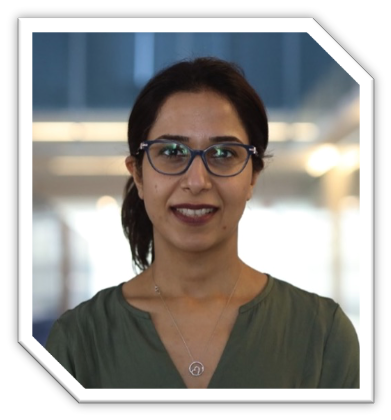
Mahla Poudineh Ph.D
I am the founding director of the IDEATION Lab (Integrated Devices for Early disease Awareness and Translational applicatIONs Laboratory) and an Assistant Professor at University of Waterloo (Waterloo) since January 2020. We apply innovative engineering solutions and functional biomaterials to tackle major challenges in modern life sciences and medicine. Our advancements introduce a new generation of polymeric wearable systems for minimally invasive monitoring and treatment in outpatient settings. We also develop technologies that enable continuous, real-time tracking of clinically important biomarkers, a capability not achievable through existing methods. I was trained as an electrical engineer at the University of Tehran, where, during my M.Sc. studies, I gained considerable expertise in micro and nano-fabrication. Then, I deployed these fabrication experiences while pursuing my PhD in Toronto, developing lab-on-a-chip devices for cancer diagnosis. During my PhD, I gained significant experiences in biosensing then expanded my knowledge at Stanford. At IDEATION Lab, I am running an interdisciplinary group of engineers, chemists, and biologists working to develop unique solutions and advanced engineering tools as ‘next generation’ biosensors. The quality and impact of our work have been recognized with various accolades, including the highly competitive Johnson & Johnson WiSTEM2D Scholars Award-Technology Category (2023), Waterloo Faculty of Engineering Research Excellence Award (2023), and ECE Department Research Excellence Award (2022). I am committed to encouraging more women to have faith in themselves even when faced with challenging circumstances.
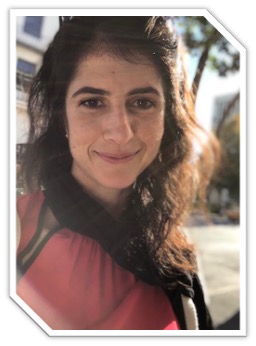
Amani Hariri Ph.D
“After finishing my undergraduate studies in Chemistry in Lebanon (AUB), I moved to Montreal to pursue my PhD (McGill University) with a research focus on DNA characterization at the single molecule level using fluorescence methodologies in the Cosa and Sleiman laboratories. In 2016, I then continued on to do postdoctoral fellowship at Stanford University (USA) in Engineering, with Prof. Tom Soh, where I am currently also an instructor, focusing on the development of advanced and sensitive biosensors for detecting biomolecules in complex environment for the early detection and personalized treatment of diseases. I will start my own lab at UBC in April 2023, where I will combine my expertise in molecular design and optics to engineer novel single molecule diagnostics platforms to help unravel the grand challenges of biomedical research. As a woman and a first-generation scientist who got displaced (immigrated) twice, it did take a lot of resilience, dedication, and ambition to become the aspiring and hybrid scientist I am today - something that I am proud off. I have been lucky to benefit from some wonderful mentors and role models whose career paths, achievements, and international reputations as leaders in their field have shaped me as a scientist. They have been a source of inspiration to aspiring junior scientists like myself. Looking forward, I realize the need to give back and I am happy to serve as a mentor for the NSERC - Promote Program, to help inspire more women to believe in themselves despite the odds against them. Outside the lab, I enjoy politics, entrepreneurship, and hanging out with friends and family.”
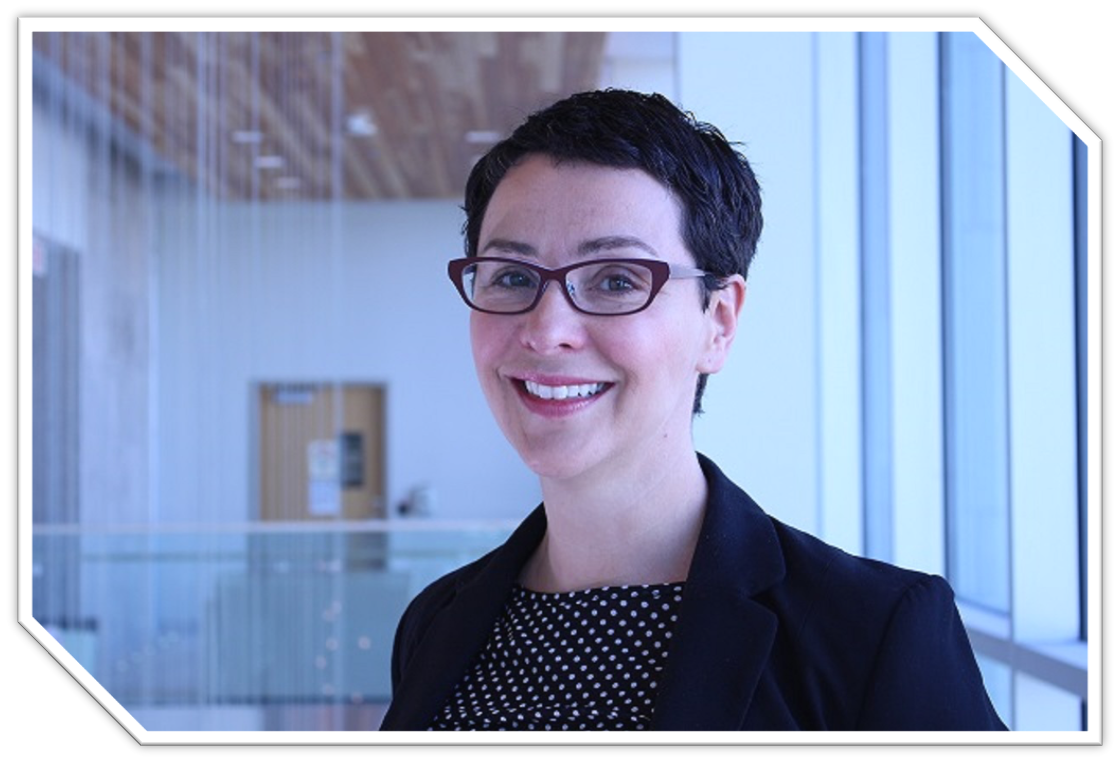
Stéphanie Michaud Ph.D
Stéphanie earned a PhD in Organic Chemistry from McGill University and worked as a synthetic organic chemist for several years (university spinout), soon after, which resulted in several patents. She currently is the president and CEO of BioCanRx where she is responsible for running all facets of the organization. She brings over 20 years of public, government and private sector experience in research, science, technology and innovation (STI) policy and program delivery. She strives to create partnerships between government, not-for-profits, academia and industry to maximize the impact of translational cancer research funded by BioCanRx on the lives of those affected by cancer. This includes the creation of new opportunities to include the patient voice as equal partners in the BioCanRx research program by working with patient groups and cancer charities to inform them of these activities and the research program. Prior to joining BioCanRx, Stéphanie was Deputy Director of the flagship Government of Canada NCE program. She is a strong contributor to STI policy, notably in intellectual property (IP) policy and established the IP policy for the Natural Sciences and Engineering Research Council (NSERC) in 2008, which is still in use today. She currently serves as Director on the Boards of the StemCell Network and Research Canada and is a past alumna of the Governor General’s Leadership Conference (2015) and inaugural Centre for Drug Research and Development (now adMare) Executive Institute (2018).

Juliana Muñoz Escobar Ph.D
I completed my undergraduate studies in Biological Engineering at Universidad Nacional de Colombia and came to Canada shortly after to pursue a PhD in Biochemistry and Structural Biology at McGill University. My proudest accomplishment to date has been the completion of my PhD as I always dreamed of becoming a scientist. I am also a proud immigrant who has successfully adapted to life in a different country and culture. After my PhD, I have had the opportunity to work as a scientist for a start-up, in business development for not-for-profit and for a pharmaceutical company and most recently as an analyst at Amplitude Ventures, a venture capital firm focused on precision medicine. One of the aspects I enjoy the most about my current role is the ability to use my critical thinking skills and scientific knowledge to accelerate innovation in bio-therapeutics and health care. I also have the chance to meet numerous entrepreneurs, scientists and executives with incredible minds and excitement for science and innovation. I get to be surrounded by truly inspiring people that thrive driving a positive impact in healthcare.

Helen Tran, Ph.D.
Helen is an Assistant Professor at the University of Toronto in the Department of Chemistry (co-appointed in the Department of Chemical Engineering). She was an Intelligence Community postdoctoral fellow at Stanford University under the mentorship of Prof. Zhenan Bao in the Chemical Engineering Department, where she worked on stretchable and biodegradable electronics. She received her BS in Chemistry with a minor in Chemical Engineering from the University of California—Berkeley in 2009, conducting undergraduate research with Prof. Tsu-Jae King Liu (Electrical Engineering, Berkeley). In the two subsequent years, Dr. Tran was a post-baccalaureate fellow and Scientific Engineering Assistant in Dr. Ronald Zuckermann’s research group at the Molecular Foundry at Berkeley National Labs, exploring the self-assembly of biomimetic polymers into 2D nanosheets. She completed her PhD at Columbia University in 2016 under the supervision of Prof. Luis Campos as a National Defense Science and Engineering Graduate fellow, broadly investigating hierarchical ordering and periodic patterning in block copolymer systems. To date, she has been awarded the Agilent Cary Recognition for Scientific Innovation Award, the Dorothy Shoichet Women Faculty in Science Award of Excellence, International Center for Materials Research fellowship, and George Pegram Award. Also, she was selected as a AAAS IF/THEN Ambassador for her outreach endeavors, leading to media opportunities such as being featured on the CBS TV show Mission Unstoppable and on the Girl Scouts Cadette Badge Workbook for Exploring STEM Careers. Dr. Tran has been committed to scientific outreach, endorses communication among interdisciplinary disciplines, and continually strives to become a supportive mentor.
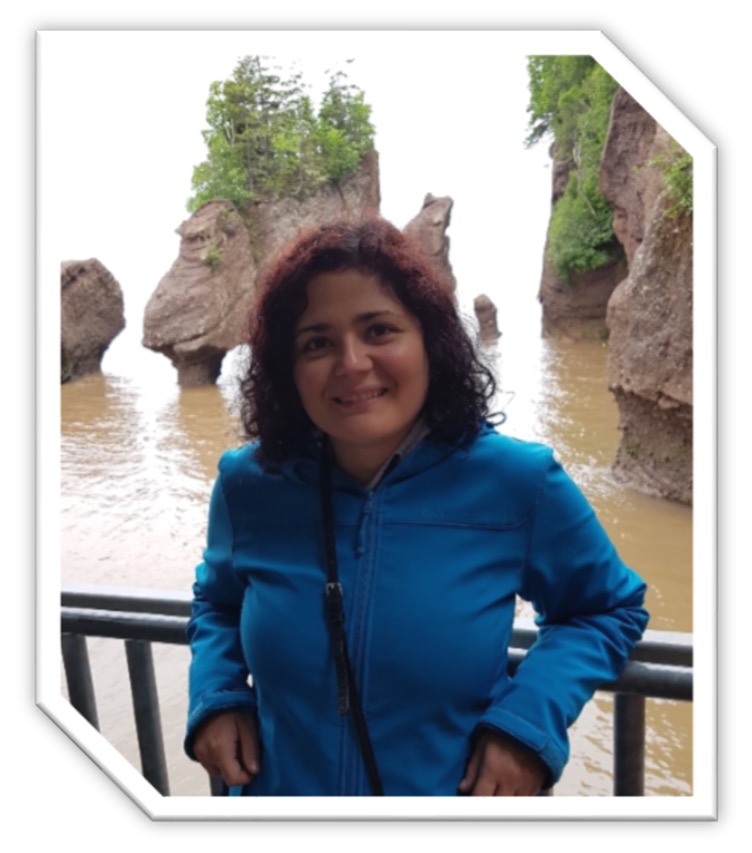
Sophie-Anne Lamour, Ph.D.
Doing science is, for me, about furthering knowledge and improving people's lives. After considering becoming an astronomer to discover the mysteries of the universe, I realized that I was more interested in discovering the mysteries of the human body at the cellular level. With that in mind, I studied biochemistry at McGill University. Thirsty for new knowledge, I embarked on a PhD in Pharmacology and Therapeutics studying the androgen regulation of apoptosis and cell survival in the epididymis at McGill. Realizing along the way that I wanted my work to have a more direct impact on people’s lives and curious to learn about a new field, I started working for Health Canada in early 2011 as pre-market reviewer of cardio-renal drugs. In that role, I reviewed pre-clinical and clinical data ensuring that Canadians have access to safe and effective drugs. Always open to explore new fields, I also reviewed cardiovascular medical devices and gastrointestinal drugs. In 2017, I switched fields and types of work to support the legalization and regulation of cannabis. Since then, I have written educational materials for the public, the medical and scientific communities, supported compliance, enforcement and regulatory work. Since 2020, I am the scientific project lead for the development of a new framework to support non-therapeutic research on cannabis.
Working for the government allows me to maintain a good work-life balance. I enjoy hiking in the Gatineau Park, spending time with friends and family, traveling and discovering the beauties and cultures of our world.

Pooja Shree Mishra, Ph.D.
Pooja Shree was trained as a neuroscientist and explored the causes and cure for Motor Neuron Disease during her academic years. Currently, she serves as a science analyst with the Canadian Food Inspection Agency, where she contributes toward evidence-based decision-making and policy formulations. In her additional academic/scientific positions, she serves as a reviewer and an associate editor for various peer-reviewed journals/books. As a science communicator, she has held various panels as well as sessions with school kids and co-organizes science communication events like Soapbox science. In her leadership position as the co-chair for the CFIA visible minority forum, she facilitates discussions around equity, diversity, inclusion, and participation of equity-seeking groups in the Canadian landscape. She also sits on the advisory committee for the Ottawa Science Policy Network.
In her spare time, she loves to read and write fiction, which also is instrumental for her in maintaining a work-life balance.
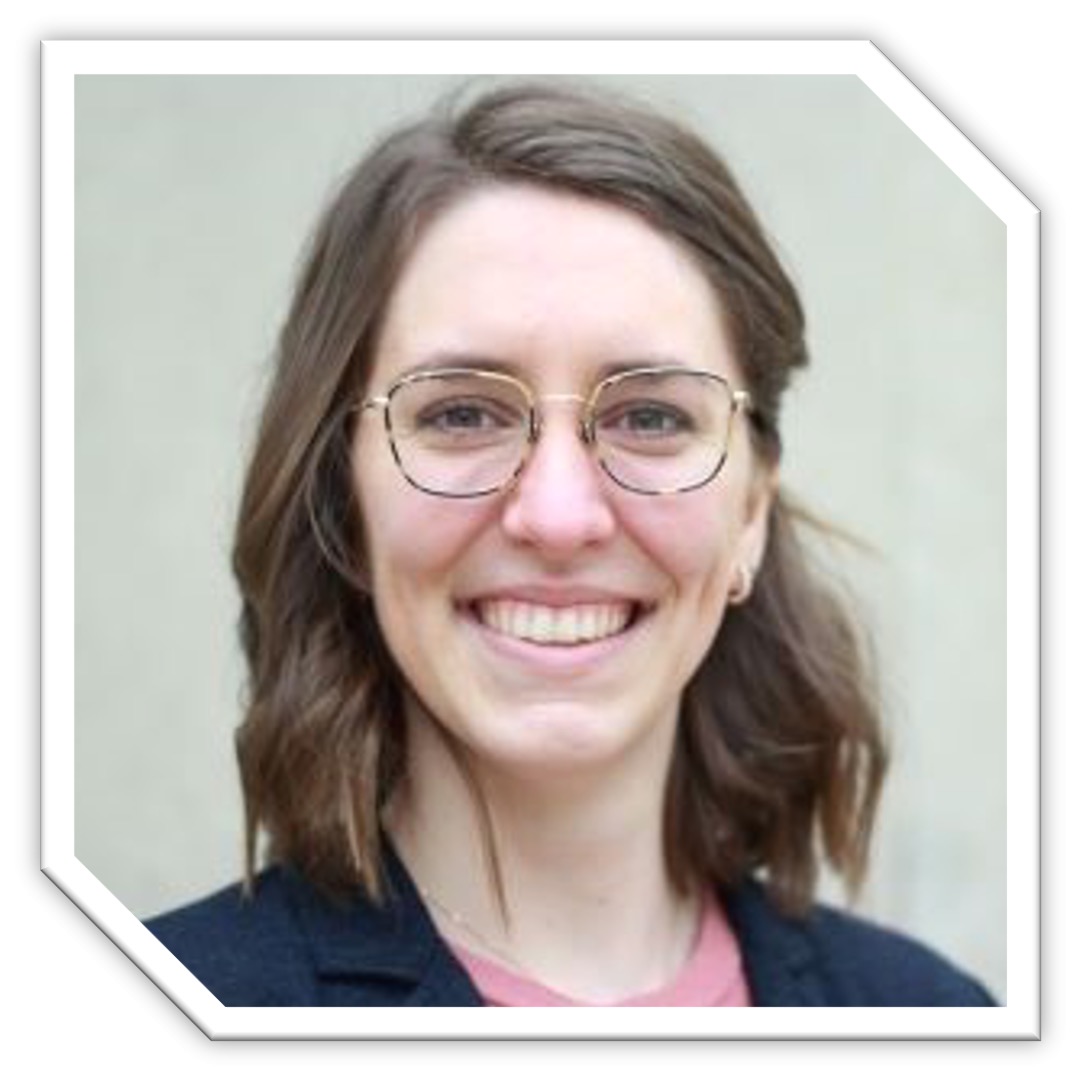
Katherine Bujol, Ph.D.
Originally from the Eastern Townships in Québec, I completed my B. Sc. and Ph. D. in Chemistry at McGill University in Montréal. My thesis work with Prof. Hanadi Sleiman was focused on the development of responsive DNA nanostructures for biological applications. I then moved to Evanston where I carried out my postdoctoral work at Northwestern University in Prof. Chad Mirkin’s laboratory. The focus of my work was the development of new syntheses for oligonucleotides and spherical nucleic acids carrying positively charged groups. I am now an Assistant Professor at McMaster University in the Department of Chemistry & Chemical Biology where my group and I are investigating backbone-modified DNA nanostructures as platforms for interrogating biology and to develop new nanomedicines. Since joining this field, I have thoroughly enjoyed working alongside students and faculty who are passionate about science and, most importantly eager to welcome and train newcomers.
The most rewarding aspect in my new job consists in supporting trainees towards achieving their goals and see them develop their own vision with regards to their projects. In my free time, I enjoy biking, skiing, reading, and meeting up with friends and family.
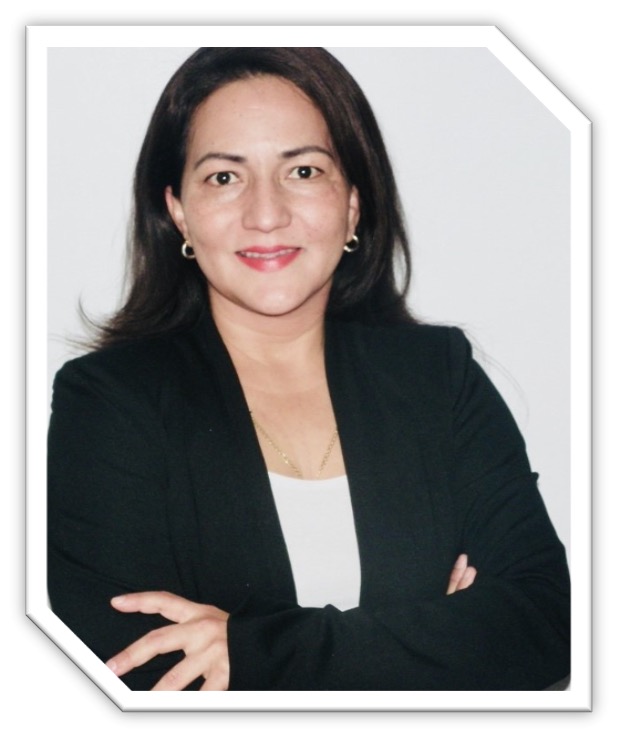
Edna Matta-Camacho, Ph.D.
Originally, from Colombia, I am a chemist/structural biologist with experience in academia, private, and government sectors. I obtained my Ph.D. at McGill University, studying the structure of ubiquitin-related proteins, and our discoveries constituted a significant advance to the understanding of the life cycle of proteins. Currently, I am an Assessment Officer at the Therapeutic Products Directorate in Health Canada. I am actively involved in Health Canada's Sex and Gender Action Plan that integrates sex and gender considerations into Health Canada's research, policies, regulations, and services. Additionally, I am a member of the Health Products and Food Branch Science Network steering committee, a community that promotes scientific excellence, advises on horizontal science issues, and facilitates science-policy integration. My passion and motivation for scientific research stem from my deeply rooted belief that science is a motor for societal innovation based on Equity, Diversity, and Inclusion. I am passionate about empowering and supporting youth's education, which motivated me to launch the STEM sin Fronteras (STEM without Borders) Foundation. This Colombo-Canadian project strives to improve access to quality education and equity in the rural areas of Colombia & Latin America.
As a proud mother, I try to lead by example. I balance my daily workload to create quality time with my children, organize games, family dinners and instill leadership traits in my kids, hoping to raise compassionate and responsible citizens. During my professional formation, I have had the opportunity to mentor many students in different countries, and I am honoured to serve as a mentor to doctoral students as part of the NSERC CREATE PROMOTE program.
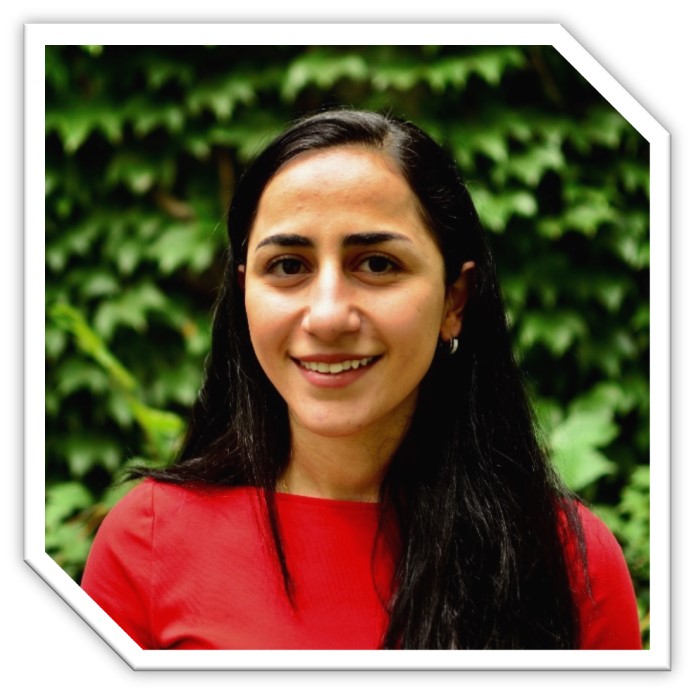
Hala Abou Assi, Ph.D.
Originally from Aley, Lebanon, I completed my undergraduate studies in Chemistry with Distinction in 2010 at the American University of Beirut (AUB) in Lebanon. Passionate about Chemistry, I then pursued my PhD under the supervision of Prof. Masad Damha at McGill University in the Chemistry Department, where my research focused on characterizing i-motif and G-quadruplex structures to investigate their role in telomere biology. On completion of my PhD in 2017 I was awarded the best thesis in the department (Carl Winkler Award). I soon followed my research adventures with postdoctoral training at Duke University under the joint supervision of Dr. Hashim Al-Hashimi and Dr. Christopher Holley, where my training focuses on determining how post-transcriptional modifications affect the structure and function of RNAs. My work has been funded by an NIH T32 Multidisciplinary Heart and Vascular Diseases training grant and an NIH F32 postdoctoral fellowship.
The most rewarding part of my work, current and past, has been the relationships I developed with my mentors and colleagues. I was fortunate to have of mentors and friends that have been supportive, inspiring, motivating, and intellectually challenging. They have been most beneficial for me not only from an academic standpoint, but also to my growth as a person. When I am not working, I enjoy fitness, horseback riding, meeting friends, and traveling with my family.
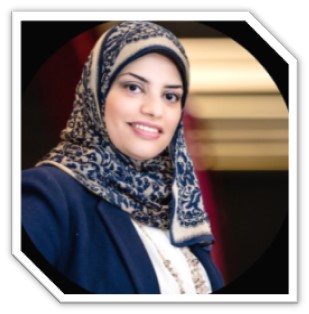
Nadia Al-Banna, Ph.D., MBA
I am a Project Manager at National Research Council of Canada. Bridging science and business, I am interested in advancing healthcare innovations, and promoting active research-industry-community partnerships. I was a biomedical researcher at Dalhousie Univ. and McGill Univ, an Assistant Professor of Microbiology & Immunology at Qatar Univ. and a strategic management researcher at Univ of Toronto. As a consultant, I advised projects at SickKids Foundation, Sinai Health System, and several biotech ventures. I then became the Director of Research and Strategy at Allarta Life Science (based at McMaster Univ). My research was presented in 20+ publications, 20+ presentations and multiple radio interviews. I am grateful to having won several awards (MITACS Canadian Science Policy, MITACS Accelerate, FRQS Fellowship, Rotman OnBoard and Weider Foundation’s Leadership Development Lab–Advanced Program), and having served as a Member of UofT's Academic Board and its Committee on Academic Policy & Programs.
As a mentor and an invited panelist speaker, I support efforts for women-in-STEM, science entrepreneurship and career development projects. I am also a member of the francophone Rotary e-club première 7040. In my spare time, I enjoy learning languages, watching foreign TV series and traveling to learn about different cultures and communities. During COVID-19, I’ve been learning knitting and meeting people across the world (virtually!). Feel free to connect with me at https://www.linkedin.com/in/nadiaalbanna
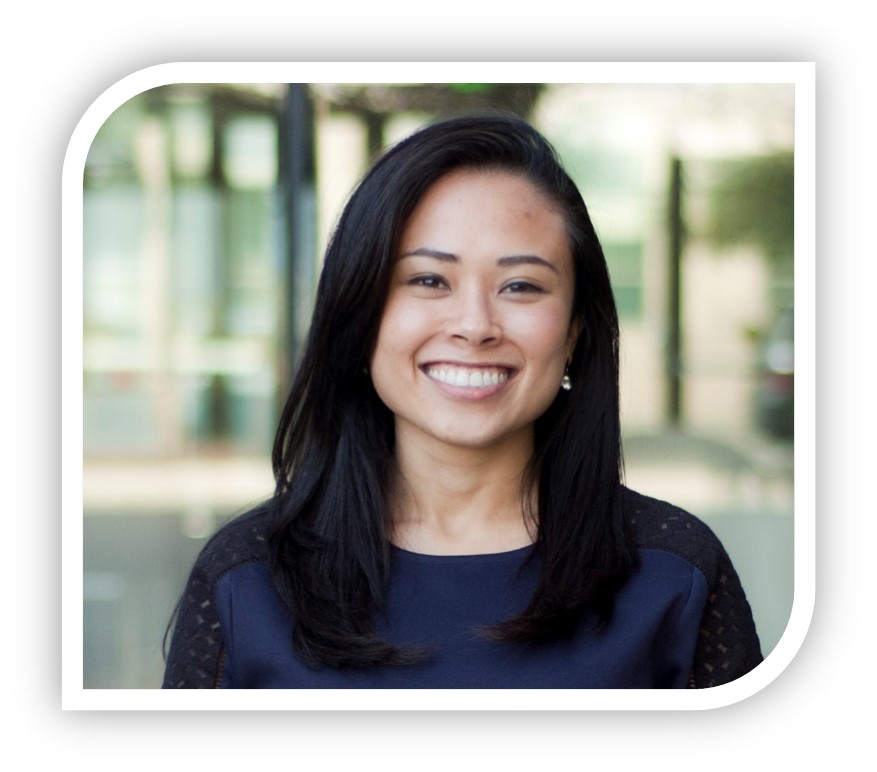
Karina Carneiro, Ph.D.
Karina Carneiro is an Assistant Professor at University of Toronto, Faculty of Dentistry with a cross-appointment with the Institute of Biomedical Engineering (BME). Originally from Brazil, Karina left her country when she was 16 years old to pursue her education and dream of becoming a scientist and professor. She has a joint BSc (Chemistry, Honours) from Mount Saint Vincent University and Dalhousie University, and a PhD (Chemistry) from McGill University. Prior to joining University of Toronto, she did a 2-year postdoc training at University of California in San Francisco. Her favorite part of being a professor is sharing her passion of science with her group. She particularly enjoys spending time in the lab with her trainees discussing data and running experiments. The lines between home and work are blurred for Karina, since her husband is also a chemist – they met during graduate school –and who enjoys science as much as her. With a growing family, Karina gets through her week by following a schedule and having to do lists for both short- and long-term goals.
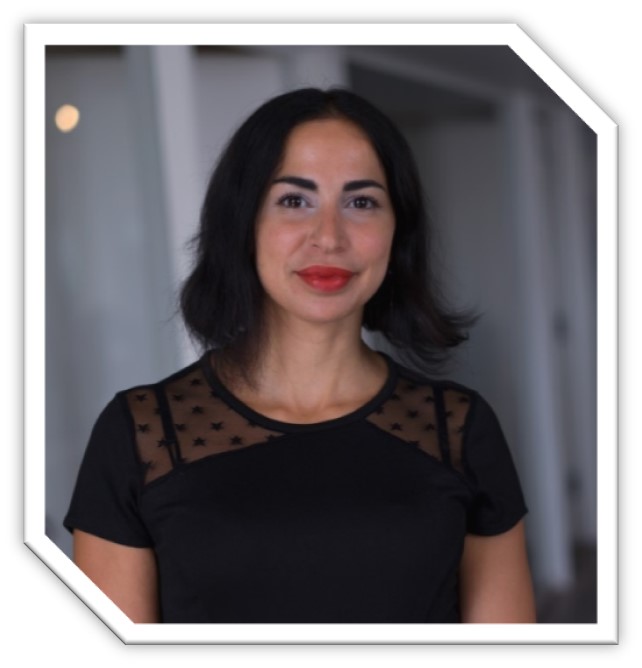
Jida El Hajjar, Ph.D., C.Adm.
Ph.D., C.Adm.
Twelve years ago, I left my native Lebanon to complete my PhD in molecular biology at the University of Montreal. Soon after, I joined the clinical research unit specializing in phase 1 and “first-in-human” oncology clinical trials at the Jewish General Hospital, followed by the Rossy Cancer Network, (collaborative initiative between McGill University/Health Centre, Jewish General & St. Mary’s Hospitals). In my current position as Vice-President in Investment and Health Promotion of the Quebec Breast Cancer Foundation, I establish the investment strategies to support the mission of the Foundation: the Foundation’s research program, the community support services offered to patients and caregivers, as well as the patient education and awareness program. I am involved in various government and patient advisory committees, patient and caregiver advocacy, health literacy, and applications of innovation in clinical and social services.
Most importantly, I am a proud mother that aims to raise two strong and independent daughters by pushing them outside their comfort zone and by teaching them not to be fearful of “running” too fast. I encourage them to be daring and take risks. As I write this text, I realize how far I have come. This is why I am motivated to share my experience with young scientists entering the job market. I am part of Women in Science group and I am delighted to mentor a doctoral student as part of the NSERC CREATE PROMOTE program at McGill University.
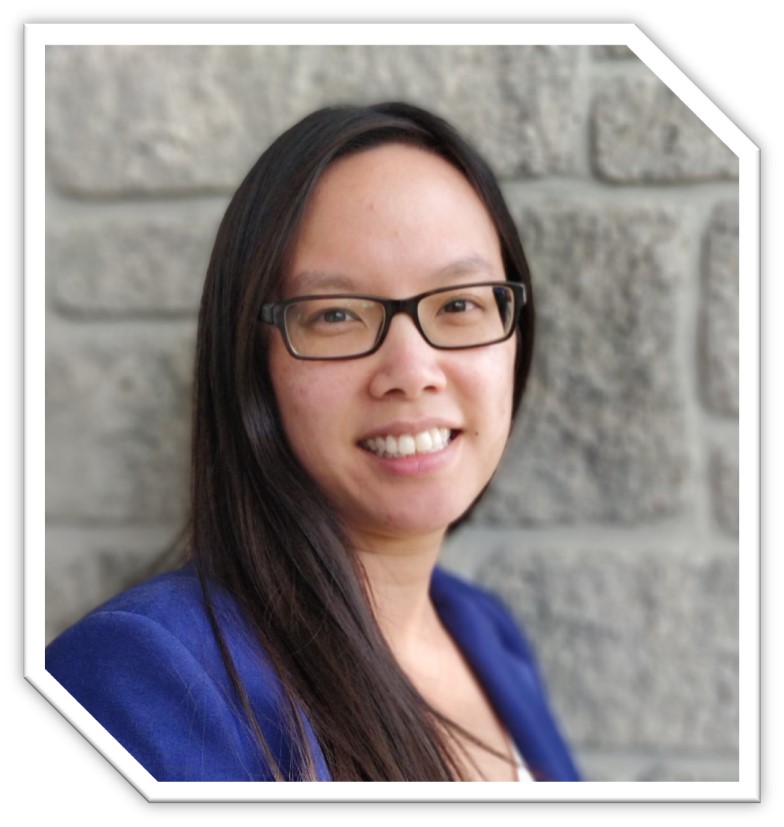
Rolanda Lam, Ph.D.
Rolanda Lam earned her Honours B.Sc. in Forensic Science and Chemistry from the University of Toronto Mississauga prior to joining the Royal Canadian Mounted Police (RCMP) as a civilian forensic identification member. She was then awarded three simultaneous Ph.D. scholarships to work on an Australian Research Council Linkage Project due to her combined operational and research experiences. As a result, Rolanda moved to Australia and earned her Ph.D. at the University of Technology Sydney; her research investigated the use of biomolecular recognition in novel fingermark detection methods. Upon her return to the RCMP, she conducted forensic toxicology analyses before making her way back to her forensic identification roots. Rolanda is currently a lead research scientist at the RCMP, where she focuses on improving the forensic identification discipline through research and standards development. She enjoys sharing new information to frontline operations nationally and to the greater forensic science community at conferences.
Now that she has attained this career goal, Rolanda is improving her work-life balance. When her spare time isn’t filled with forensic-related matters (e.g., Canadian Society of Forensic Science Journal Editor responsibilities), she likes to do arts and crafts, learn new board games, and play ultimate. Knowing the benefits of having a great mentor herself, Rolanda wants to provide aspiring (forensic) scientists with guidance and advice, so they can expand their professional network and be successful in their future endeavours.
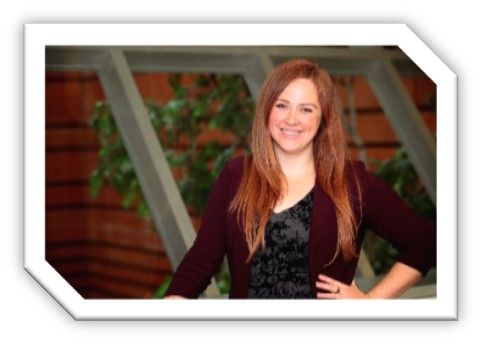
Erin McConnell, Ph.D.
Currently I am a postdoctoral fellow under the supervision of Prof. Yingfu Li, in the Department of Biochemistry and Biomedical Sciences at McMaster University. The interdisciplinary team I work with is interested in developing molecular recognition tools out of DNA, called DNAzymes, for the detection of pathogenic bacteria in water. Previously, I completed a B.Sc. in neuroscience, and a Ph.D. in chemistry under the supervision of Prof. Maria DeRosa at Carleton University. I love research and teaching, and one of the ways I share my passion is through science communication and outreach. I’m involved with several organizations including the Canadian Association for Girls in Science (CAGIS), and have helped organize annual events like Science Rendezvous. I was truly honoured when my contributions to mentorship and outreach were formally recognized in 2018 as I was awarded the NSERC and L’Oréal-UNESCO For Women In Science supplement to my NSERC postdoctoral fellowship award, and again in 2019 when I was called a “champion for science outreach” and awarded the representation of Helium on IUPAC’s Periodic Table of Younger Chemists on Feb 11th, the United Nations designated International Day of Women and Girls in Science.
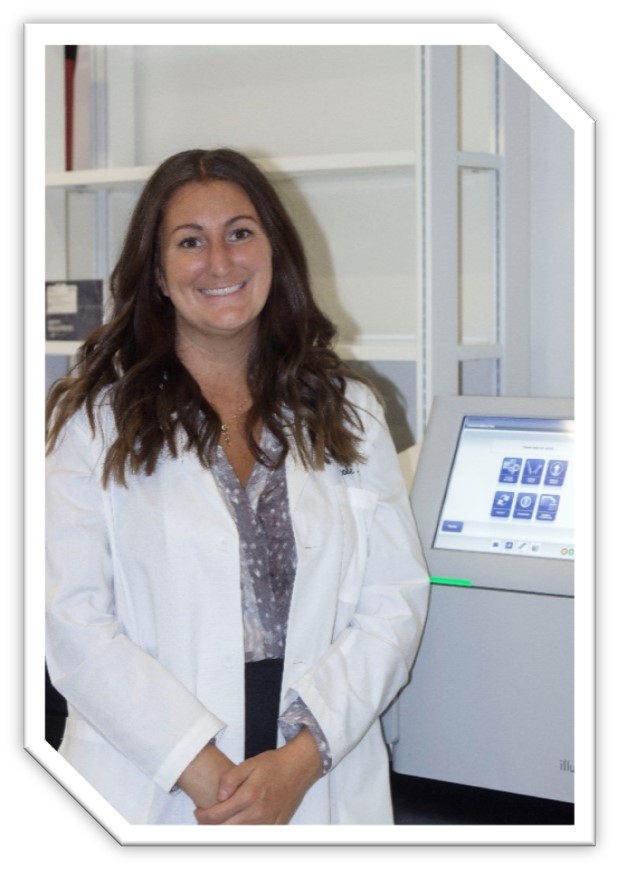
Nicole Novroski, Ph.D.
Nicole Novroski is a forensic geneticist and tenure-stream faculty member at the University of Toronto in the Department of Anthropology with a primary teaching appointment in the Forensic Science Program at the University of Toronto Mississauga. Her research program focuses on novel and innovative approaches to improve upon current forensic genetic methodologies using MPS-based instrumentation. Nicole’s education includes a Bachelor of Science (Hons) in Forensic Science and Biology from the University of Toronto, a Master of Science in Forensic Biology from the University at Albany (SUNY) and a PhD in Molecular Genetics from the University of North Texas Health Science Center at Fort Worth, Texas. For her PhD, she primarily focused on the exploration of previously uncharacterized genetic markers for improved DNA mixture de-convolution of complex forensic profiles. Her publication record includes over 20 peer-reviewed manuscripts, 35 scientific communications and presentations as well as two book chapters. Nicole is passionate about mentoring, volunteerism and continuing education. Within her laboratory, she has a growing team of undergraduate and graduate trainees. Further, she assists legal professionals and the public as a forensic DNA expert through her firm 4NGen Consulting. In her spare time, she volunteers with the Junior League of Toronto, Toronto Counter Human Trafficking Network and is actively pursuing a degree in Forensic Accounting. Finally, Nicole loves animals and the outdoors, and tries to maintain balance by staying active, spending time with her dog and cooking at home!